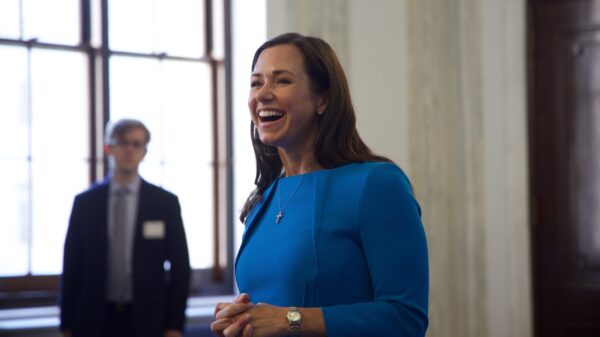By Brandon Moseley
Alabama Political Reporter
On Friday, Representative Spencer Bachus (R) from Vestavia introduced legislation (The Regulatory Flexibility Improvements Act of 2013) that would require federal agencies to be more accountable for the effects of proposed regulations on small businesses. The bill, which has bipartisan support, would tailor final rules to minimize their impact.
This bill would update and more fully implement small business regulatory relief which both Republicans and Democrats in Congress as well as President Clinton (D) agreed to on a bipartisan basis in 1996. The Regulatory Flexibility Improvements Act of 2013 has been referred to the Judiciary Committee and the Small Business Committee for consideration.
Rep. Bachus said, “In my view, the health of small businesses is one of the most important issues confronting our country. Small businesses are the source for almost half of our workforce, and while I’m concerned about many economic factors, it’s also my view that government regulations have a disproportionate impact on small businesses. While all businesses have to comply with state and local regulations, federal regulations can impose an even greater burden because most small businesses simply do not have the resources or the time to monitor and participate in the federal regulatory process or dispute new rules.”
Congressman Bachus is the chairman of the Judiciary Subcommittee on Regulatory Reform, Commercial and Antitrust Law.
Judiciary Committee Chairman Robert Goodlatte (R) from Virginia said, “America’s economy owes much to the ingenuity and hard work of small business owners and their employees. In fact, small businesses create the largest share of new American jobs. However, small businesses currently face historic obstacles, as is reflected by today’s historically low levels of small business start-ups. At the top of the list of those obstacles – as poll after poll demonstrates – is the level of federal regulation coming from Washington. Congress can and should act to free small businesses of the burdens and waste associated with excessive federal regulations.”
Small Business Committee Chairman Sam Graves said, “Small business owners consistently cite compliance with government regulations as one of their biggest concerns facing them today. Not all regulations are bad, but many can be unnecessarily burdensome. Because small businesses bear a regulatory cost that is much higher than the cost of compliance for large businesses, the government should closely examine the impacts of the regulation before they are finalized. The Regulatory Flexibility Act is good policy to help protect small businesses from overly burdensome regulations, but federal agencies should comply with it and be held accountable for their actions.”
Karen Harned with the National Federation of Independent Business (NFIB) Small Business Legal Center Karen Harned said, “With Main Street still struggling to regain its footing, Congress needs to take steps to address the growing regulatory burden on small businesses. The proposed reforms in the Regulatory Flexibility Improvements Act are a good first step.”
Many economists blame the growth of the federal governments regulatory footprint under President Obama with the historically low growth rates following the Great Recession of 2008-2010.
On Friday, Rep. Bachus spoke at a committee hearing entitled “Examining How the Dodd-Frank Act Could Result in More Taxpayer Bailouts.” Congressman Bachus argued that there are procedure which would be fairer to taxpayers and a more effective way of ending “Too Big To Fail.” than the bailout system which was created by the Dodd-Frank act.
Congressman Bachus represents Alabama’s Sixth Congressional District.






















































